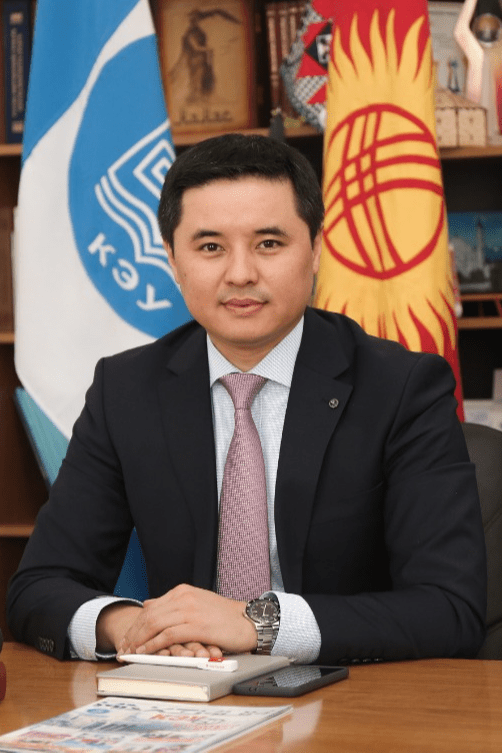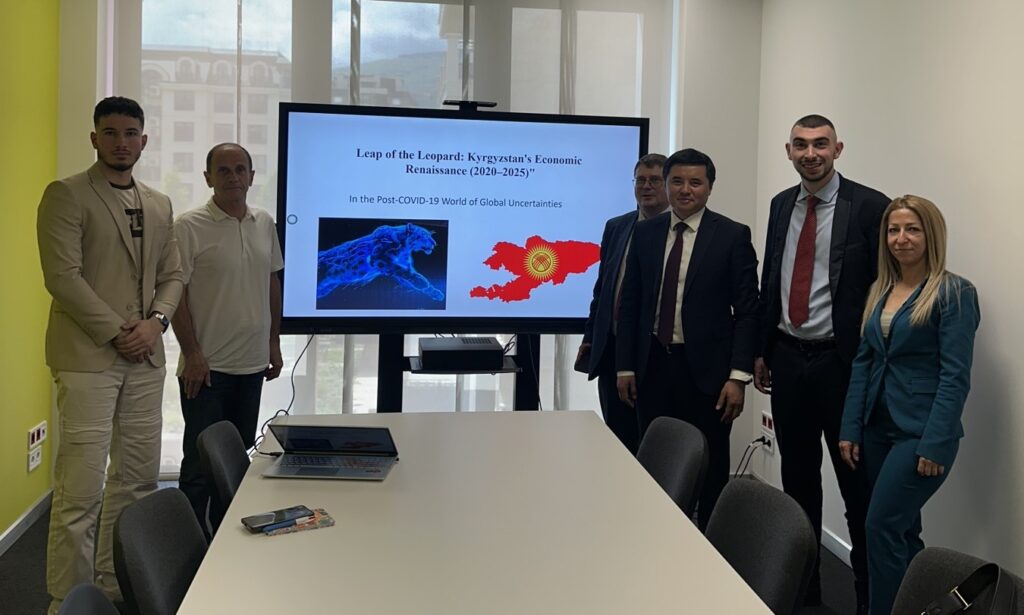A public lecture by Assoc. Prof. Dr. Almaz Kadyraliev, Rector of the Kyrgyz Economic University, was held at IBS.
On May 7, 2025, at 11:00 a.m., a public lecture by Assoc. Prof. Dr. Almaz Kadyraliev—Rector of the Musa Ryskulbekov Kyrgyz Economic University, National Research University, Bishkek, Kyrgyzstan—was held at the International Business School (IBS) in Sofia and online via the BigBlueButton platform.

The theme of the event was “Opportunities and Challenges for the Economic Development of Kyrgyzstan in a World of Global Uncertainties After COVID-19,” and the lecture attracted interest from both the academic community and representatives of business and diplomacy.
Assoc. Prof. Dr. Kadyraliev was a guest at IBS at the invitation of Prof. Dr. Georgi Apostolov, Rector of IBS, and Prof. Dr. Preslav Dimitrov, a faculty member at the institution, with whom he has a long-standing collaboration on various international educational and research initiatives.

In his speach, Assoc. Prof. Dr. Kadyraliev presented a current analysis of Kyrgyzstan’s economic dynamics over the past five years. He emphasized that the country is the only one in the Central Asian region to have doubled its gross domestic product (GDP) between 2020 and 2025, despite the global uncertainty caused by the COVID-19 pandemic and the subsequent geopolitical and economic disruptions.
With a population of 7.2 million and a still relatively low GDP per capita of USD 2,200, Kyrgyzstan continues to face significant economic challenges. These include dependency on organized crime, structural deficiencies in the economy, and the pressing need for diversification of foreign trade.
Special focus was given to the strategic infrastructure project for the construction of a road and rail corridor connecting China with Kyrgyzstan and Uzbekistan, continuing through the Caspian Sea to Russia and in parallel toward Turkey, providing access to the European Union via ports and railway infrastructure—including Bulgaria.
Dr. Kadyraliev also highlighted the role of the youth population, which makes up the largest percentage in Central Asia, as a key resource for future economic growth—if supported by targeted policies in education, digitalization, and innovation.
The lecture also addressed Kyrgyzstan’s constitutional transition from a parliamentary to a presidential republic, with emphasis on the new opportunities for political stability and governance efficiency. Dr. Kadyraliev participated in the working group that developed the new constitution.
The lecture was part of a series of international events organized by IBS in support of global dialogue on sustainable economic development and international cooperation.

